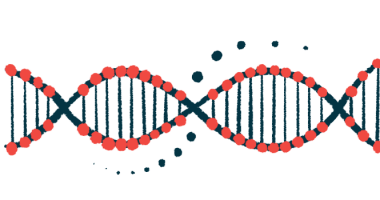Patients with severe GBA mutations seem to decline faster: Chinese study
Faster declines in motor and cognitive function seen with severe GBA variants

Parkinson’s disease patients carrying severe variants in the GBA gene, a known genetic risk factor, experience faster motor and cognitive decline than those without such mutations, a Chinese study shows.
Faster motor function decline was primarily driven by worsening bradykinesia (slow movements) and axial impairment (walking, posture, and balance problems). Cognitive decline was due to deficits in executive function (decision-making, working memory, and attention) and visuospatial function (space orientation and motion perception).
“Better understanding of GBA-PD [GBA-associated Parkinson’s disease] progression may help predict prognosis and improve clinical trial design,” researchers wrote.
The study, “Association of GBA genotype with motor and cognitive decline in Chinese Parkinson’s disease patients,” was published in the journal Frontiers in Aging Neuroscience.
GBA mutations are common risk factors for Parkinson’s
Parkinson’s symptoms arise from the progressive loss of neurons that produce dopamine, a major brain chemical messenger.
Variants in the GBA gene are one of the most common genetic risk factors for Parkinson’s. The GBA gene provides instructions for making beta-glucocerebrosidase, an enzyme active in lysosomes, which are structures inside cells that degrade and recycle molecules.
Although it remains unclear how GBA mutations are related to Parkinson’s, some studies suggest that the impaired breakdown of toxic molecules within lysosomes may contribute to the loss of dopamine-producing neurons.
In addition, people who carry these variants can develop the condition at an earlier age and experience more severe motor symptoms. Previous studies have also suggested that GBA mutations are linked to faster cognitive decline and an increased risk of dementia, sleep disorders, depression, and lower survival rates.
However, “the influence of GBA variants on motor and cognitive impairment has not been previously investigated in the Chinese [Parkinson’s disease] population,” the researchers wrote.
To address this gap, a team of researchers in China analyzed the data of 43 Parkinson’s patients with GBA variants and 246 without. All had complete clinical data at the study’s start (baseline) and at least one assessment during follow-up (mean of 2.6 years in the GBA-PD group and 3.5 years in the other group).
These findings have important clinical implications for understanding the role of GBA variants on patterns of motor and cognitive decline in the natural course of [Parkinson’s disease].
Changes in motor function were assessed with the Unified Parkinson’s Disease Rating Scale-part 3, while those in cognitive function were measured with the Montreal Cognitive Assessment.
A total of 31 different variants were detected in the GBA gene, which were associated with distinct degrees of severity.
When adjusted for potential influencing factors, results showed that carriers of GBA mutations were younger at baseline and at symptom onset, had more advanced disease, and worse motor skills compared with non-carriers.
While there were no group differences in terms of tremor and axial impairment severity, GBA-variant carriers had more severe muscle rigidity and bradykinesia.
Over time, the decline in motor and cognitive function in patients with GBA mutations progressed significantly faster than those without. These differences were primarily driven by the 16 patients with severe GBA variants, as there were no differences in motor decline between patients with non-severe mutations and non-carriers.
Findings may help clinicians more accurately predict prognosis, design trials
“The magnitude of the impact on motor impairment in the severe GBA-PD group was greater than that in the overall GBA-PD group,” the researchers wrote, stating the same about the impact on cognitive impairment.
In addition, changes in bradykinesia and axial impairment were mostly responsible for the observed differences in motor function decline between GBA-mutation carriers and non-carriers. Faster cognitive decline in the GBA-PD group was mainly driven by changes in executive function and visuospatial cognitive.
“Our data provide an important missing piece of the puzzle, demonstrating for the first time in a large longitudinal study that cognitive progression in GBA-PD is specifically manifested as visuospatial/executive function impairments,” the researchers wrote.
Overall, these results highlight that “both motor and cognitive impairment progressed more rapidly in the GBA-PD patients, especially the severe subgroup, compared to [non-carriers],” they added.
“These findings have important clinical implications for understanding the role of GBA variants on patterns of motor and cognitive decline in the natural course of [Parkinson’s disease],” the team wrote, “which could help clinicians more accurately predict prognosis and design clinical trials for potential disease-modifying therapies.”
They noted, however, that future studies should also assess for the presence of other known genetic risk factors of Parkinson’s, which could influence disease progression.








